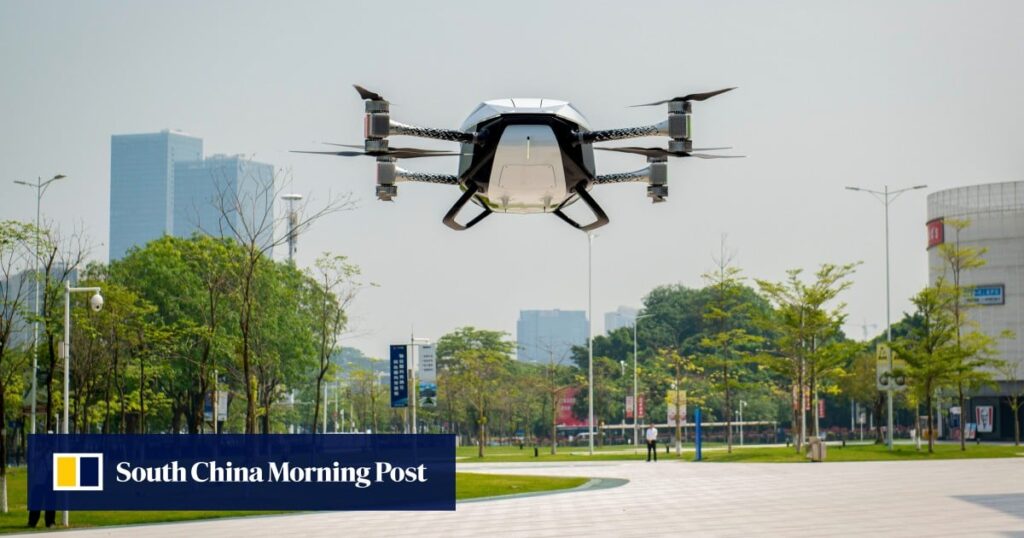Xpeng AeroHT Sets Sights on Delivering First Flying Car by 2025
In an ambitious leap for urban air mobility, Xpeng AeroHT, a subsidiary of Chinese electric vehicle (EV) giant Xpeng, has announced the pricing and delivery timeline for its much-anticipated flying car. Priced at around $200,000, the vehicle is expected to be available by the end of next year. Wang Tan, the company’s co-founder and chief designer, disclosed these details during a panel discussion at the South China Morning Post’s China Conference.
The Rise of the Low-Altitude Economy in China
Xpeng AeroHT’s entry into the flying car market comes at a time when China’s low-altitude economy is experiencing significant growth. Spurred by supportive government policies and regulations introduced in 2021, the sector surpassed 500 billion yuan (approximately $69.5 billion) last year. According to the Civil Aviation Administration of China, the market is projected to reach an impressive 2 trillion yuan by 2030.
A Decade in the Making
Founded in 2013, Xpeng AeroHT has spent the past decade developing its electric vertical take-off and landing (eVTOL) vehicle. The company boasts research facilities in Guangzhou, as well as additional labs in Shenzhen and Shanghai. Their efforts culminated in the AeroHT Voyager X2, which successfully completed a low-altitude flight in Guangzhou’s central business district in March.
Government Support and Technological Challenges
“We are excited and optimistic about the future of our flying cars,” said Wang Tan at the conference. "The government is very positive, supporting us with regulations and policies," he added. However, he emphasized the need for further technological advancements to ensure the highest safety standards for the vehicles. To this end, Xpeng AeroHT developed all of the eVTOL’s technology in-house, including the powertrain and flying control system.
Mass Production and Global Expansion
With an ambitious target of selling 5,000 units within the next two years, the company plans to initially roll out its flying cars in mainland China. "First, we will sell it in mainland China, and after that, we will sell it globally. Maybe the Middle East, maybe Hong Kong. I think we’re going to have this opportunity,” said Wang. The eVTOL vehicle aims to offer a novel solution for urban transportation, potentially alleviating traffic congestion by providing an aerial route for daily commutes.
Competitive Landscape
Xpeng AeroHT’s venture into flying cars puts it in competition with international players like Germany’s Lilium and American start-up Joby. Both companies have attracted significant investment through special purpose acquisition company (SPAC) deals. Lilium raised $830 million, while Joby secured $1.6 billion, both in 2021.
The Future of Urban Air Mobility
Urban air mobility, focusing on enhancing aerial connectivity within and around cities, represents a burgeoning field with enormous potential. Unlike many competitors targeting corporate clients, Xpeng AeroHT aims to cater to individual consumers, presenting a myriad of efficient, safe, and environmentally friendly mobility solutions.
In a noteworthy development, the company signed a preliminary agreement in April with the district government of Panyu, Guangzhou, to jointly construct take-off and landing sites, further paving the way for innovative urban transport solutions.
With technological progress and government backing, Xpeng AeroHT is poised to revolutionize urban transportation, turning the sci-fi concept of flying cars into a feasible reality.
For more information, visit Xpeng’s official website.
Stay tuned for updates on Xpeng AeroHT’s groundbreaking flying car and its journey toward redefining urban mobility.
